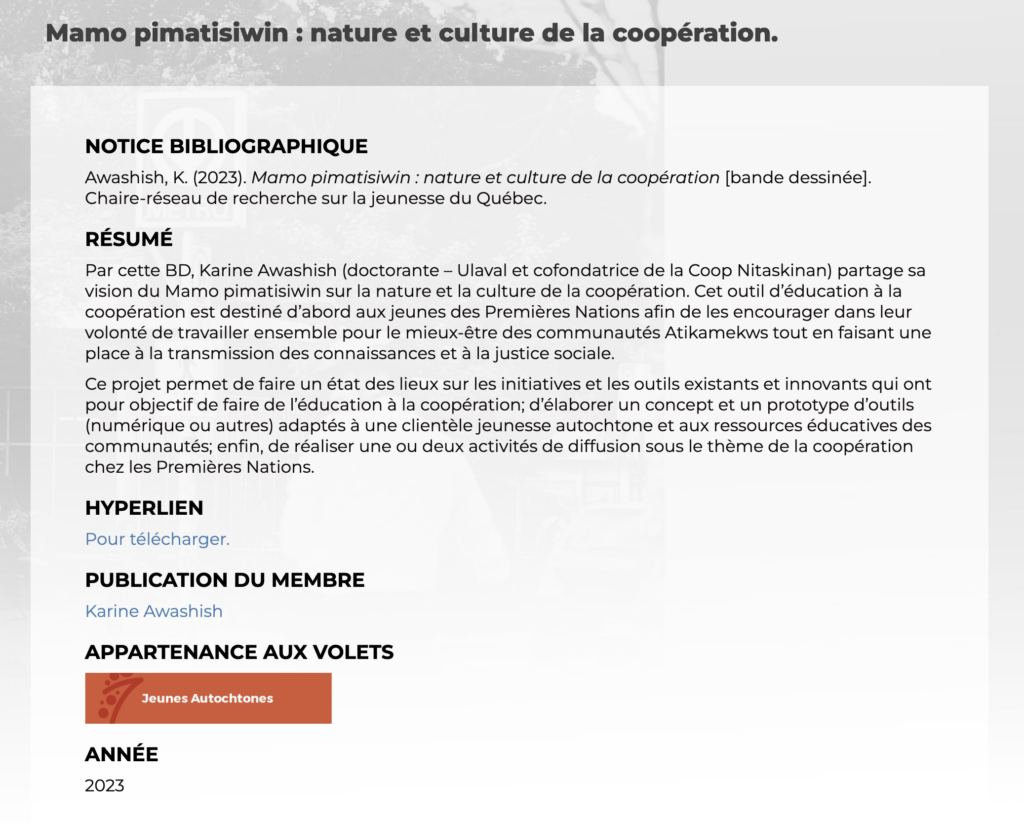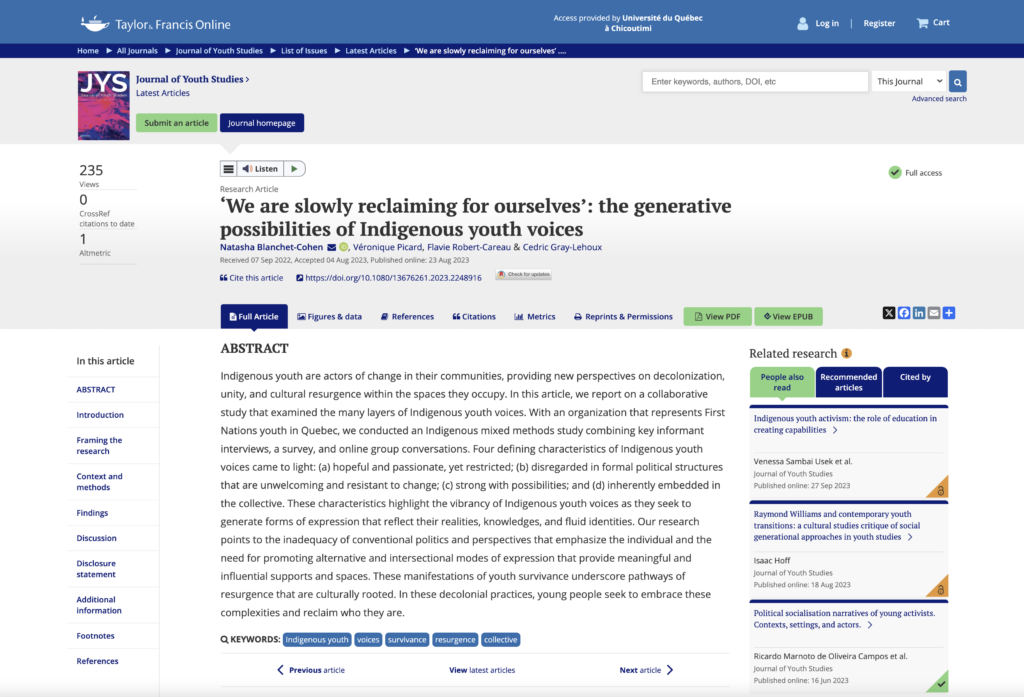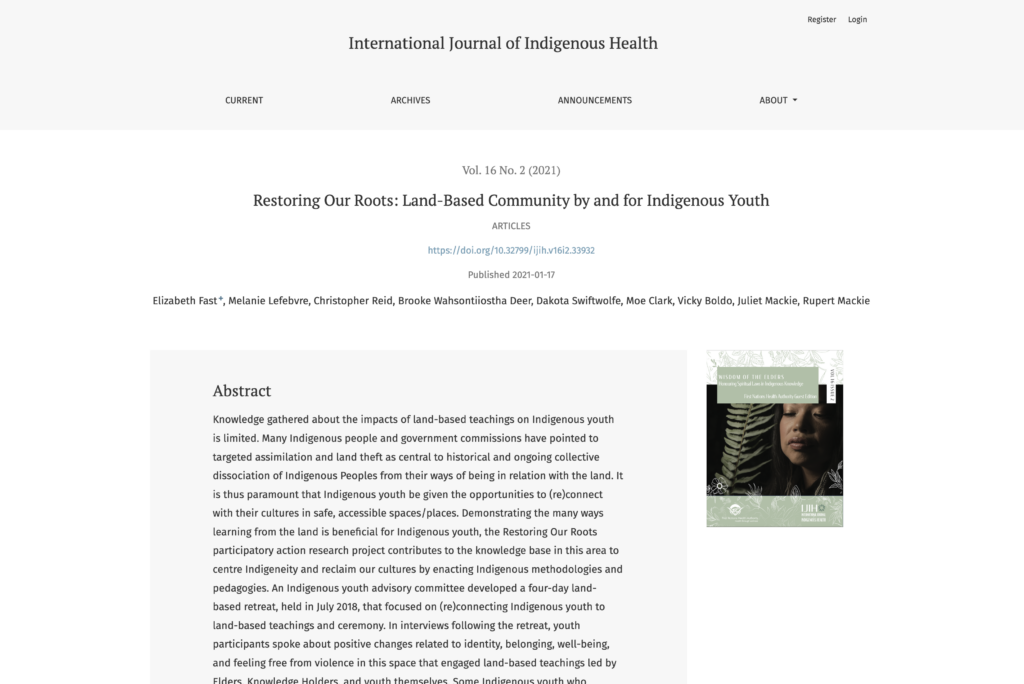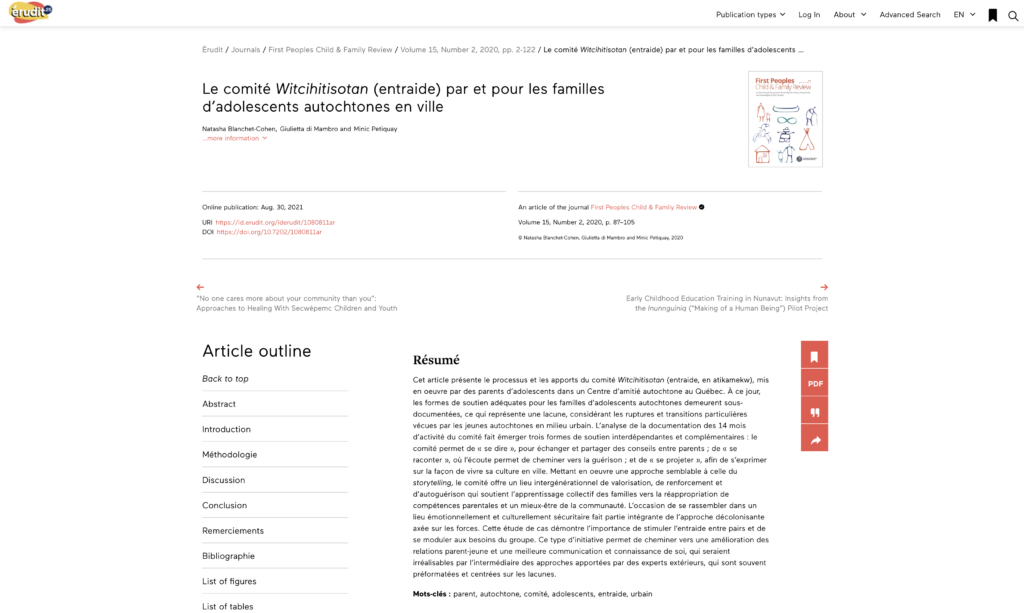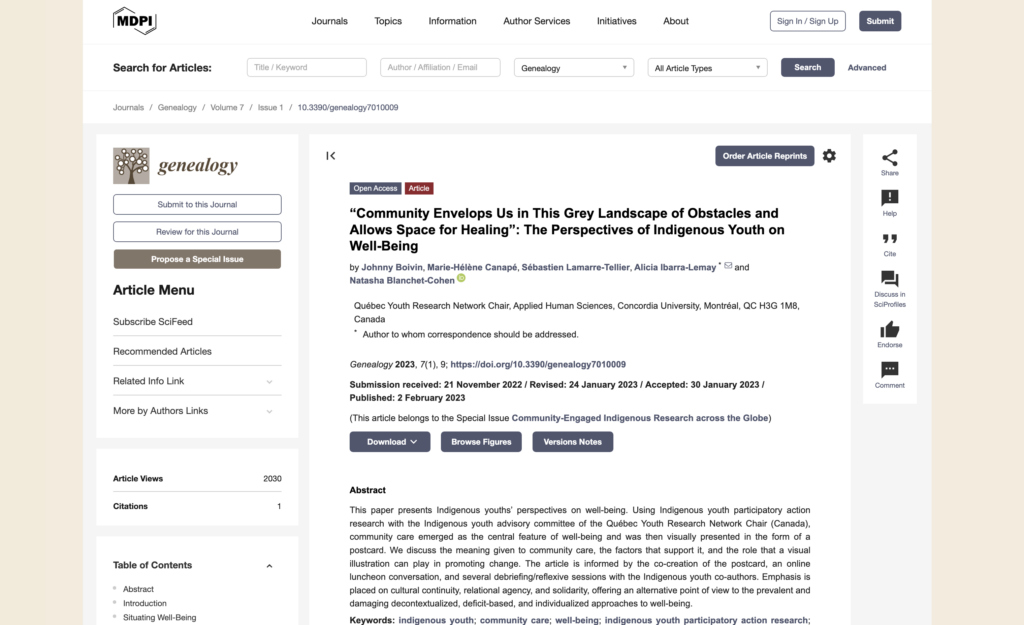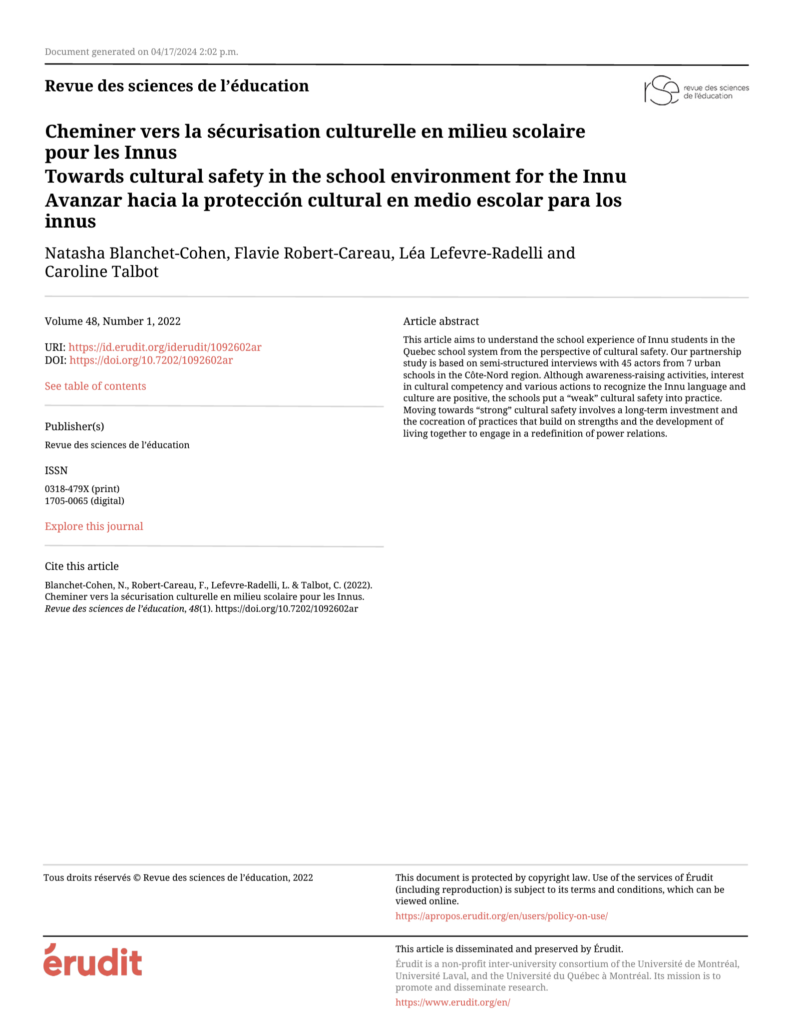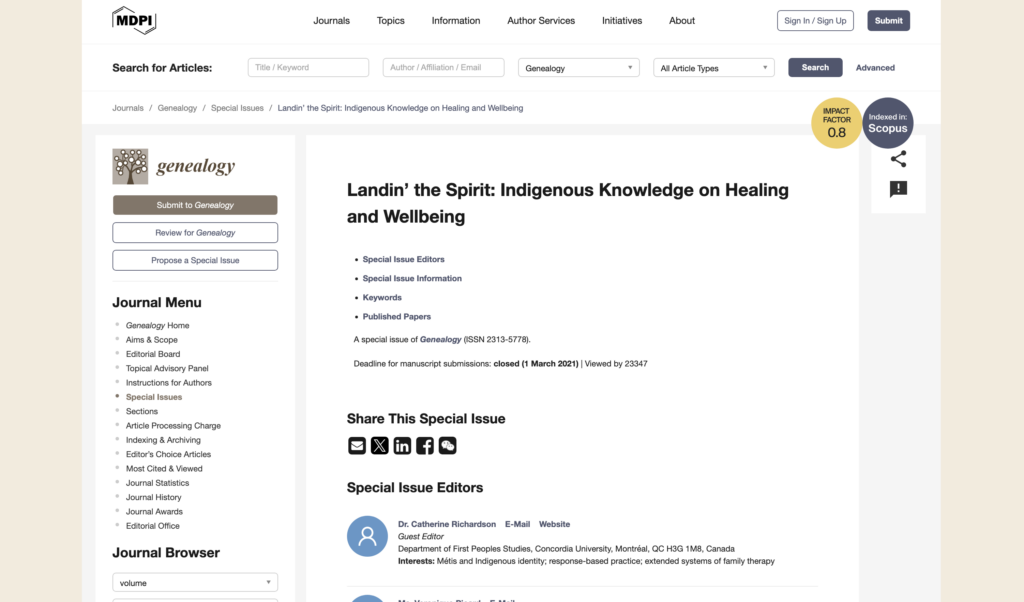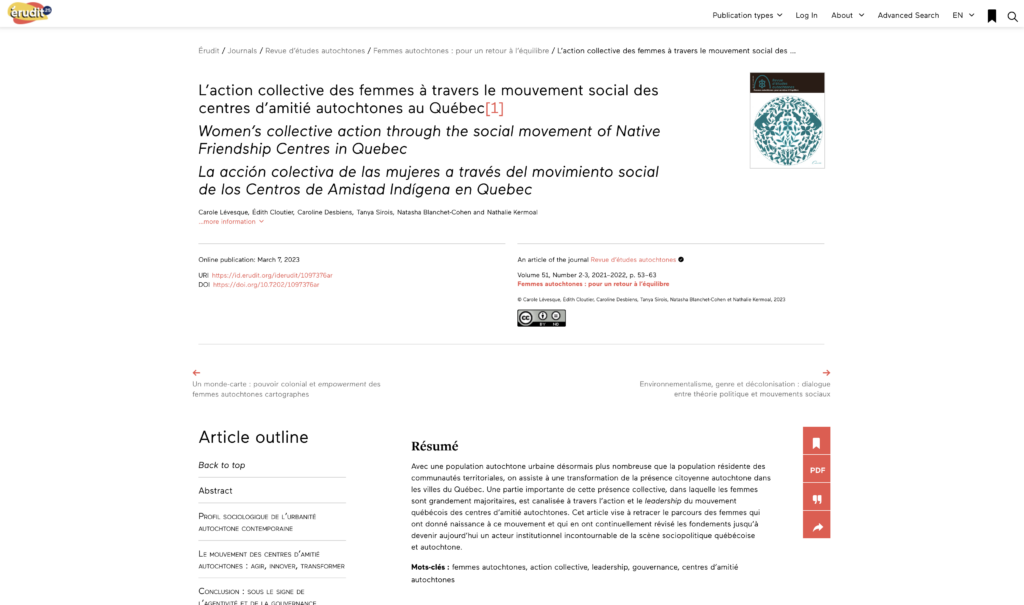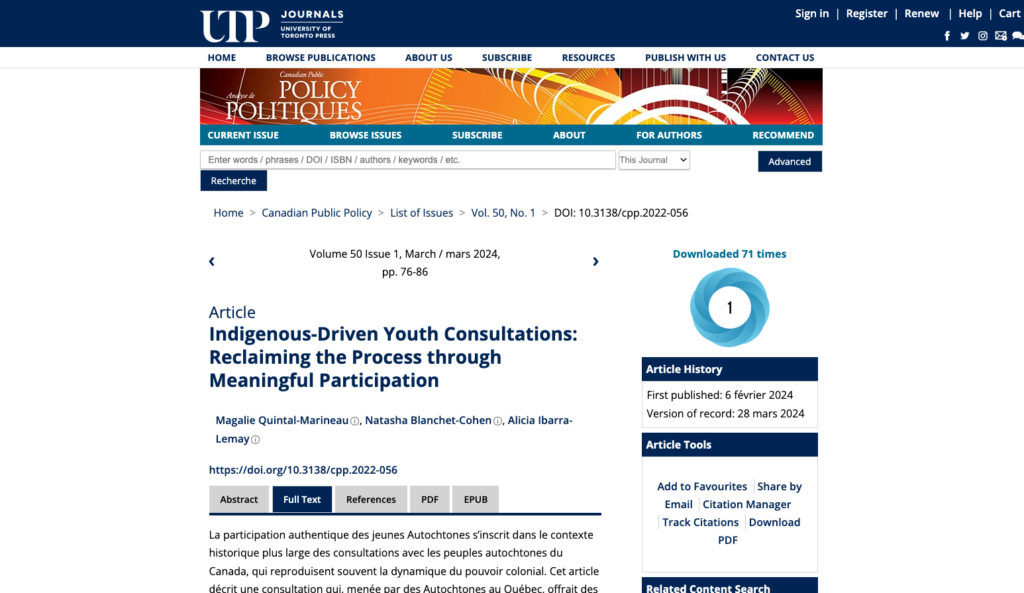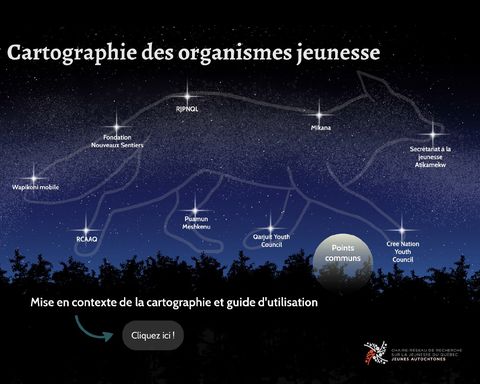Notice bibliographique
Beaudoin, J.-M., Bouthillier, L. et Chiasson, G. (2015). Growing deep roots: Increasing Aboriginal authority in contemporary forest governance arrangements. Land use policy, 49, 287-295.
Résumé
The governance literature highlights a shift away from “government” to new and more complex governing arrangements that involve a greater set of institutions and actors in decision-making processes. According to a number of studies, this shift is ongoing in forestry. This article seeks a better understanding of contemporary forest governance by exploring the emerging role of Aboriginal peoples in the Canadian forest sector. It is well known that Aboriginal participation in forest management is crucial for achieving sustainable forestry. Yet we know little about how Aboriginal communities can induce a change in governing conditions. We examined the various governance arrangements through which the Essipit Innu First Nation in Quebec (Canada) was able to exercise authority over forest management. Using multiple qualitative data gathering techniques, our analysis shows that Essipit innovated in forest governance by creating a partnership with the forest company Boisaco and, thus, gained authority over forest management decisions at the operational level. Our analysis explains that this new governance arrangement is built on growing collaboration and interdependencies between these two parties. Common values, orientations, mechanisms and tools are also necessary conditions. Finally, this research highlights the need for greater cultural understanding.
Hyperlien
https://doi.org/10.1016/j.landusepol.2015.08.004Publication du membre
Jean-Michel BeaudoinAppartenance aux volets












